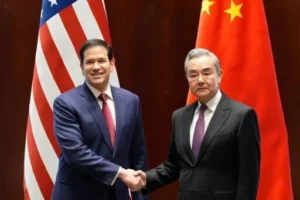
In a virtual address at the World Government Summit in Dubai, OpenAI CEO Sam Altman delved into the intricate landscape of artificial intelligence (AI) and its potential societal impacts. Beyond the conventional concerns of “killer robots,” Altman expressed a profound unease about the subtler risks of societal misalignments that could lead to unintended consequences. This article explores Altman’s perspectives on the need for regulatory oversight, the evolving role of the AI industry, and the global considerations for a comprehensive action plan.
Concerns of Subtle Societal Misalignments:
Altman’s apprehensions centered on the nuanced challenges arising from societal misalignments, emphasizing the potential havoc that AI systems could wreak. Rather than fixating on dramatic scenarios, Altman underscored the importance of addressing unforeseen consequences that might emerge through no malicious intent but could still have severe implications.
The Call for Regulatory Oversight:
Drawing parallels with other regulated domains, Altman advocated for the establishment of a regulatory body akin to the International Atomic Energy Agency to oversee the rapid advancements in AI. His proposition emphasized the urgency of proactively managing the evolution of AI technologies, considering their pace of development is outstripping global expectations.
Industry’s Role in Regulation:
While acknowledging the necessity of regulations, Altman cautioned against entrusting the AI industry, including influential players like OpenAI, with the exclusive responsibility of crafting these regulations. He stressed the importance of a broader, collaborative approach involving global stakeholders to ensure that regulations are not skewed in favor of industry interests.
Global Action Plan: Moving Beyond Debate:
Altman acknowledged the ongoing global discourse on AI regulations and considered it a healthy stage of discussion. However, he urged a transition from debates to a concrete action plan in the next few years. The goal, as he emphasized, is to garner real buy-in from across the world, recognizing the imperative for a globally endorsed framework to govern AI.
OpenAI’s Position in the AI Landscape:
As a prominent AI startup headquartered in San Francisco, OpenAI has been at the forefront of AI innovation. Altman discussed the success of OpenAI and its pivotal role in the commercialization of generative AI. Microsoft’s substantial investment in OpenAI further solidifies its standing, but Altman remains acutely aware of the ethical responsibilities that accompany such advancements.
AI in Education and Future Prospects:
Altman shifted the focus to the evolving role of AI in education, noting a significant transformation in perceptions. From initial concerns about AI being used for academic dishonesty, schools now recognize its crucial role in preparing students for the future. Altman compared the current state of AI to the early days of cellphones with black-and-white screens, predicting remarkable advancements in the next decade.
Balancing Success with Responsible Regulation:
While OpenAI’s success contributes to shaping perceptions of generative AI, Altman emphasized the critical need for responsible regulation. He stressed the importance of navigating potential societal challenges with care to ensure that AI’s advancement aligns with global values and avoids unintended consequences. The article concludes by highlighting the delicate balance between embracing AI’s potential and ensuring ethical governance in its continued evolution.
Conclusion:
Sam Altman’s insights at the World Government Summit provide a nuanced understanding of the challenges and opportunities presented by artificial intelligence. As the industry continues to push boundaries, the call for regulatory oversight, global collaboration, and ethical considerations becomes ever more critical. Striking a balance between innovation and responsible governance is paramount in charting the course for a future where AI benefits society without compromising its fundamental values.
Also Read
Breaching Advertising: Dubai Imposes Dh50,000 Fines on 30 Property Firms for Regulations.






